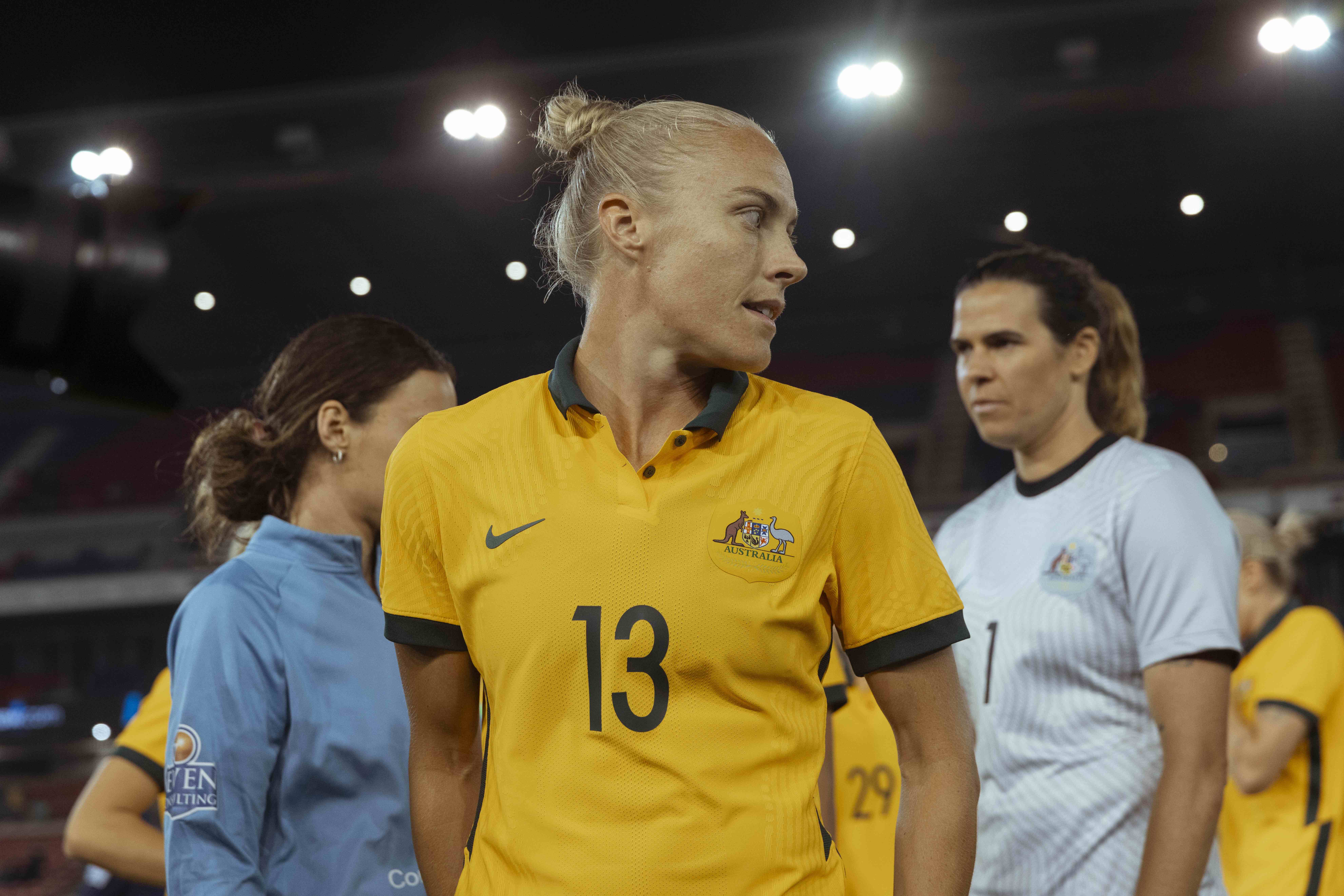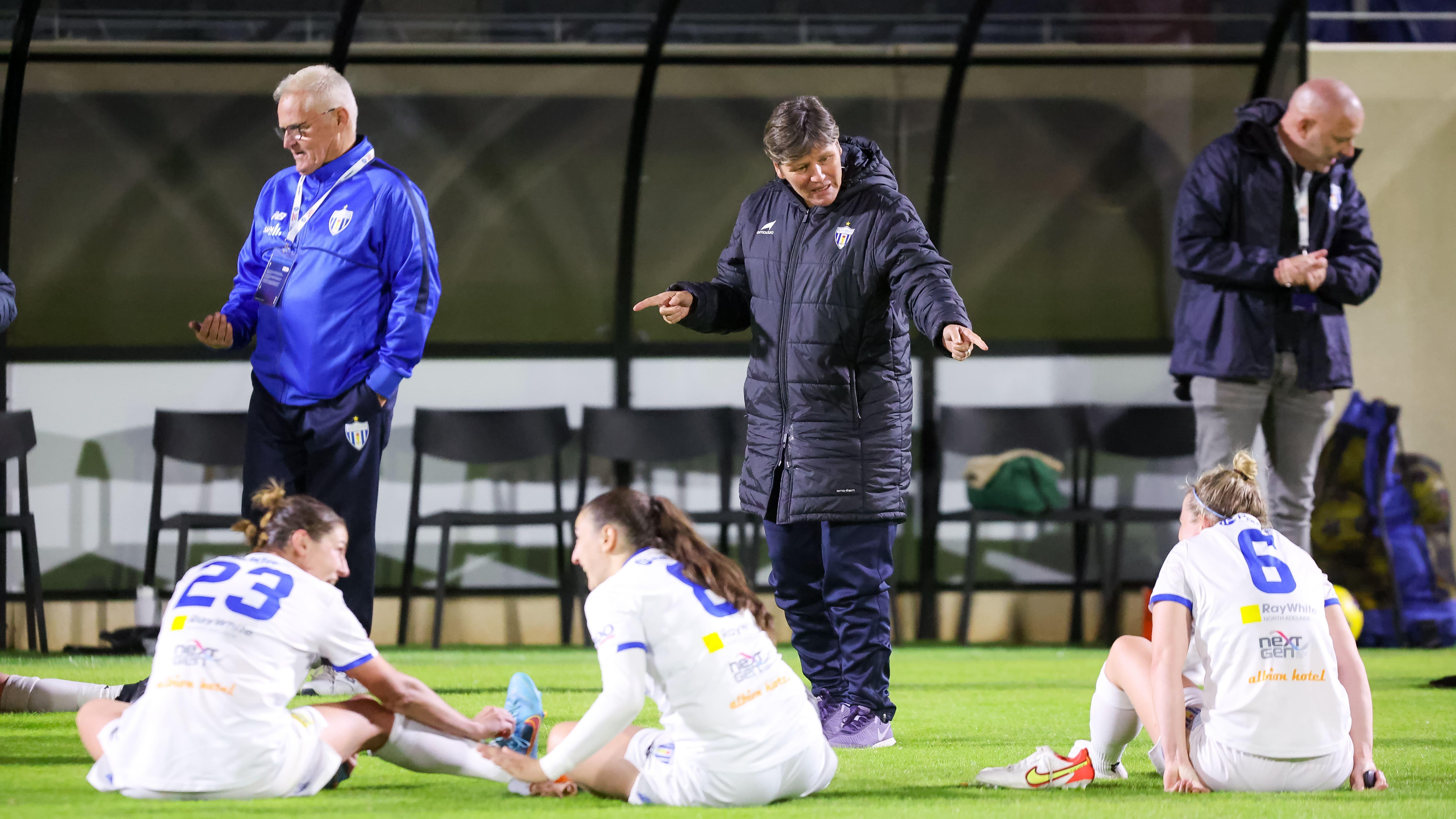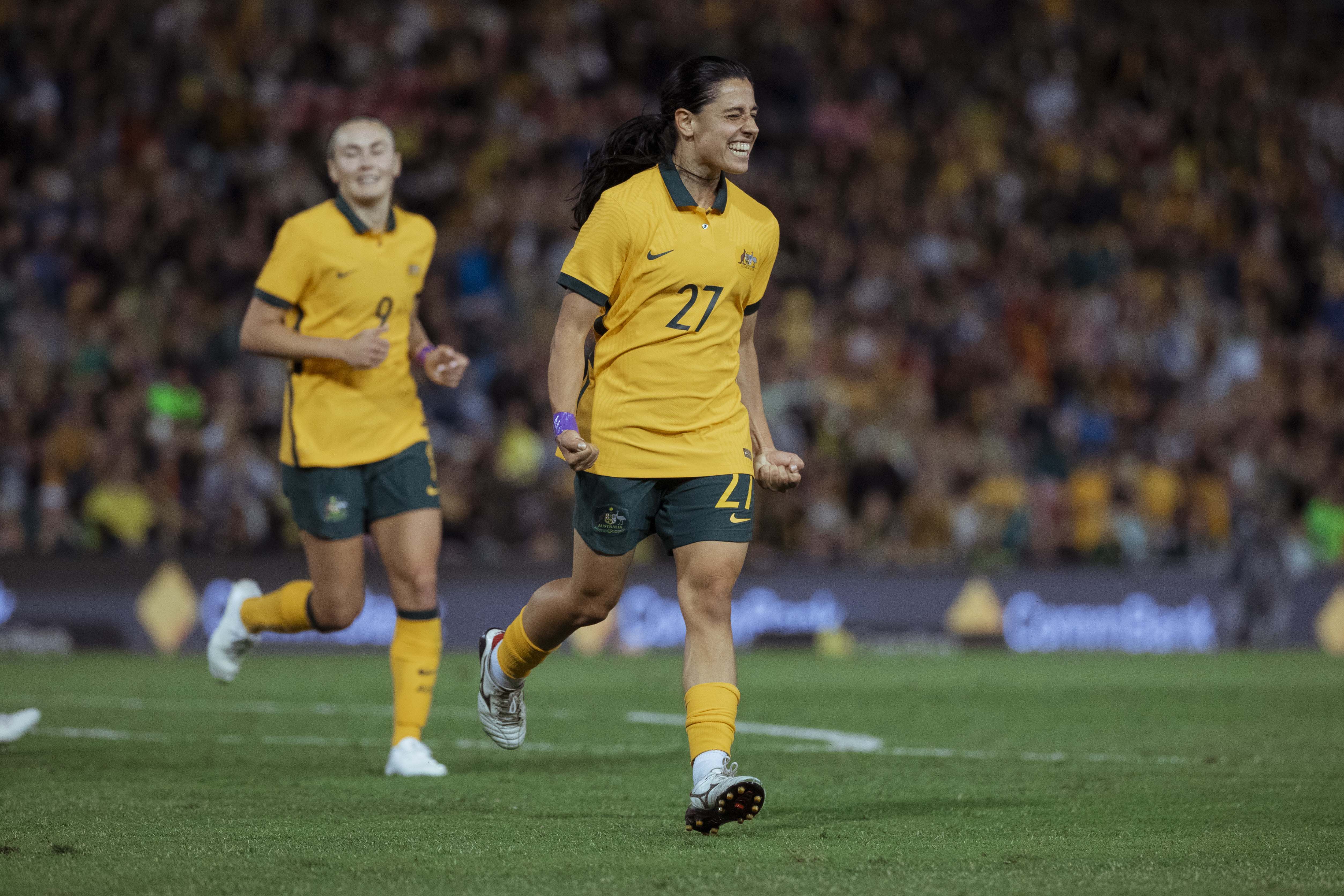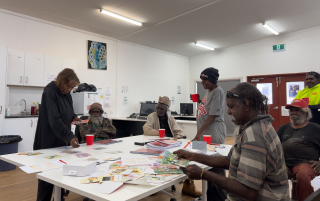Football Australia marked the end of Female Football Week 2023 by hosting a third and final seminar, this time focusing on the stories of current and former CommBank Matildas and the legacy that their hopes for the future of women in football.

The guests included Sarah Walsh, Tracy Jenkins, Tameka Yallop, and Alex Chidiac. It was hosted by Football Australia’s Media Manager Ann Odong.
The first question asked of the panelists was what legacy meant to them in the context up the upcoming FIFA Women’s World Cup 2023, to be hosted by Australia and New Zealand in July and August.
Sarah Walsh, former CommBank Matilda and Football Australia’s head of Women’s Football and Legacy, went first. She admitted that it was something that she was asked every day.
“In June 2020 when we won the rights to host, we already had a really good vision in our mind around how the game needed to be reshaped to be more inclusive and better for women and girls,” she explained.
“I think it’s important to call out the pandemic because we had this real opportunity, in really tough times for the game, to rebuild the game in a way that was better for women and girls.”
After consulting with the community, the strategy was born to make the CommBank Matildas Football Australia’s key asset around the Women’s World Cup.
“Every conversation we had within the office with commercial partners with government were centered around our Matildas and how we reshape the game around that,” she continued.
“Legacy is really just everything that underpins that making sure that we leave the game in a better place both socially and economically, leading with our amazing Matildas.”
112-cap CommBank Matilda Tameka Yallop agreed that legacy was about making things better for the next generation.

“The more visibility we can get out of this World Cup, the more that we can inspire not just women, but boys and men as well to jump onto the women’s game and support in any way they can,” she said.
The women’s game has come a long way in a short space of time. To be conceiving of such a high level of visibility and awareness is only a relatively recent phenomenon.
The likes of Walsh and Yallop, as well as many others, pushed through the barriers that they faced in order to continue to play football – but many women and girls cannot. That is something that is at the forefront of Walsh’s legacy vision.
“Through programs like Game Changer and weeks like this with Female Football Week, we think about the many levers we have to make sure that we are attracting and retaining women and girls in our game at all parts of the game,” she said.
Walsh and Yallop both acknowledged how quickly that change has come about, and what a welcome surprise it has been, particularly since 2016.
Tracey Jenkins – CommBank Matildas cap 71, debuting back in 1991 against New Zealand – emphasized that point. Her first steps in the game was being invited by a group of boys to come into their group after seeing her and her sister play in the park, and she never looked back.
“It wasn’t acceptable for girls to play football, but that’s what the game does. It brings people together,” she said.
“Those guys didn’t care whether we were girls. I think that continues on with the journey that I have now with coaching and trying to create and inclusive environment.”
Jenkins highlighted schools and community-based programs as areas that are crucial to address in order to take women’s football to the next level in Australia.

She believes that it is crucial to link those community programs to elite performance in a more cohesive way.
“We’ve got some players that are very young that are in the Matildas squad,” she explained.
“So what does that look like for them moving forward, what are the barriers to that and how can we link them into those programs, not only where they go into the Matildas but just to stay within the game?”
Jenkins explained that coaching models, particularly getting more female coaches, are vital to that process as well.
Throughout the discussion about legacy, there was emphasis on all areas of the game, from community level to elite level. The panelists acknowledged that all areas are intertwined – to have a thriving elite set-up, players need access to facilities and participation at a community level.
“For me, Female Football Week is giving women and girls at the grassroots of platform to drive the change and actually use their voice and own their moment to enact that change,” Walsh explained.
The panelists were asked about their love of the game, and what motivates them to keep giving to it every day.
“It’s what I do everyday,” Yallop answered.
“It’s what I wake up and want to do. I’ve made so many friends from it and had so many amazing experiences. I’m still creating those experiences and excitement as well.”
Yallop wasn’t aware that there was a pathway for her as a female footballer until she entered her teens, but once she discovered the CommBank Matildas, she was all for it.
“That’s what is exciting now is that there is a visible pathway for girls and although we’re still building it, it’s something that we can see and is within our reach,” she said.
Current CommBank Matilda Alex Chidiac, a midfielder currently plying her club football in the NWSL in the United States, joined the call to answer the same question.
“I don’t remember the time when I wasn’t in love with the game,” she said.
“I’ve always been really drawn to it from just playing and kicking the ball around myself… I’m lucky I get to do it as a job as well.”
“I never expected it to take me to the countries that it has and to have friends all around the world,” she continued.
“But I think when I was really young, I just knew football was going to be a part of my life in some way. I mean, I can’t really imagine myself doing anything else now.”

Both players emphasised that football changed them not just on the pitch, but as people as well.
“That’s just the crazy thing about football, isn’t it? It gives you life experiences and develops you as a person,” Yallop said.
Both players were asked about what it was like preparing for such a huge occasion as a home World Cup. Yallop explained that she has been fully focused on recovering from an ankle injury, and being at her best come July.
For Chidiac, it is about shutting out as much outside noise as possible and focusing on the task at hand – her football.
“I keep trying to remind myself that I’m playing for the love of it and the opportunity to go to a World Cup is obviously a massive bonus,” she said.
“No matter what happens, I’ll still be playing football.”
A question that came from the chat was about what makes a good coach of young players, and what they wish they had more of growing up.
Both players agreed that communication was key.
“Something I did value… was the coaches that take the time of day to explain to you certain situations in a game that you might not understand,” Yallop answered.
“I love when coaches communicate to me and there’s things that I can work on more, even if it’s a little check in, it goes a long way,” Chidiac added.
“As a kid you’re trying to impress your coach. So even something like a little bit of acknowledgement like you’re doing a good job or like Meeks said, here’s some different options for you in the game. Those things really do matter.”
Finally, both players were asked what they would say to their 11-year-old self, heading into the World Cup.
“As corny as it sounds, enjoy the experience and don’t get caught up in it too much,” Chidiac answered.
“I’ve never been to a World Cup, so I don’t know exactly how hectic it will be, but I think really strip it back and enjoy it and still be myself going into it, and not trying to change too much.”
Yallop has a constant reminder of her younger self, inked on her body.
“I have a tattoo on my foot and it says play for her, and for me that’s play for the little girl that fell in love with the game,” she said.
“I’m not saying go out and get a tattoo… but I think it’s just like Chids was saying, remember to have fun.
“I think when I look back on my football journey, the first thing that I really do think about is all of the amazing experiences and the fun that I’ve had. I think just don’t lose sight of… how much you enjoy kicking the ball and to never let it get too serious where it takes the fun out of it, because we’re so lucky to be playing football professionally and for a career.
“It would just be to keep smiling and having fun.”







